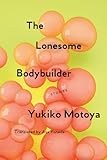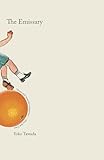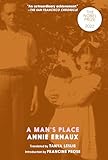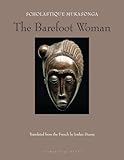Below are a handful of the many excellent books that got me through the year. As a list, it’s far from exhaustive, and not particularly systematic. But at some point I realized that it was entirely female writers in translation, and that the work of many translators I admire is included below. I’ll read a book because of a particular translator—Margaret Jull Costa, Susan Bernofsky, Natasha Wimmer, among others. I trust their work and their taste, and I let that dictate my reading.
1. Mercè Rodoreda’s Death in Spring, translated by Martha Tennent (Open Letter)
The great Catalan writer’s late masterpiece, Death in Spring comes on like a hallucination. Alongside the ecstatic prose is a devastatingly precise exploration of the human impulse to cruelty and conformity.
2. Guadalupe Nettel’s After the Winter, translated by Rosalind Harvey (Coffee House Press)
Nettel is one of my favorite writers, and I’m always interested to read what she writes. Among other things, in this novel Nettel has created one of the most sinister and wickedly exuberant male narrators since Nabokov’s Humbert Humbert.

3. Yukiko Motoya, The Lonesome Bodybuilder, translated by Asa Yoneda (Soft Skull)
This collection by the much-heralded Japanese writer is a thoroughgoing delight.
It contains one of the most perfect short stories I’ve read in a long time, The Straw Husband.

4. Yoko Tawada, The Emissary, translated by Margaret Mitsutani (New Directions)
Tawada is Japanese and lives in Berlin. She writes in both German and Japanese, sometimes in the same book. It makes sense that Tawada places language at the heart of this novel, set in a future Japan that has banished all traces of English from its native language. Mitsutani handles the somewhat paradoxical task of translating into English with delicacy and intelligence.


5. Annie Ernaux, A Man’s Place, translated by Tanya Leslie (Seven Stories) / Scholastique Mukasonga’s The Barefoot Woman, translated by Jordan Stump (Archipelago)
In these books, Ernaux and Mukasonga execute a simple but near impossible literary task: to capture a life on the page with absolute fidelity. Ernaux writes about her father’s life and death in rural France without a trace of sentiment or pity. Mukasonga’s tribute to her mother, who was killed in the Rwandan genocide, bears witness not only to atrocity, but also to complex matters of love and memory. Ernaux and Mukasonga are masters. I don’t think writing gets any better than this.
More from A Year in Reading 2018
Do you love Year in Reading and the amazing books and arts content that The Millions produces year round? We are asking readers for support to ensure that The Millions can stay vibrant for years to come. Please click here to learn about several simple ways you can support The Millions now.
Don’t miss: A Year in Reading 2017, 2016, 2015, 2014, 2013, 2012, 2011, 2010, 2009, 2008, 2007, 2006, 2005
The post A Year in Reading: Katie Kitamura appeared first on The Millions.
Source : A Year in Reading: Katie Kitamura









